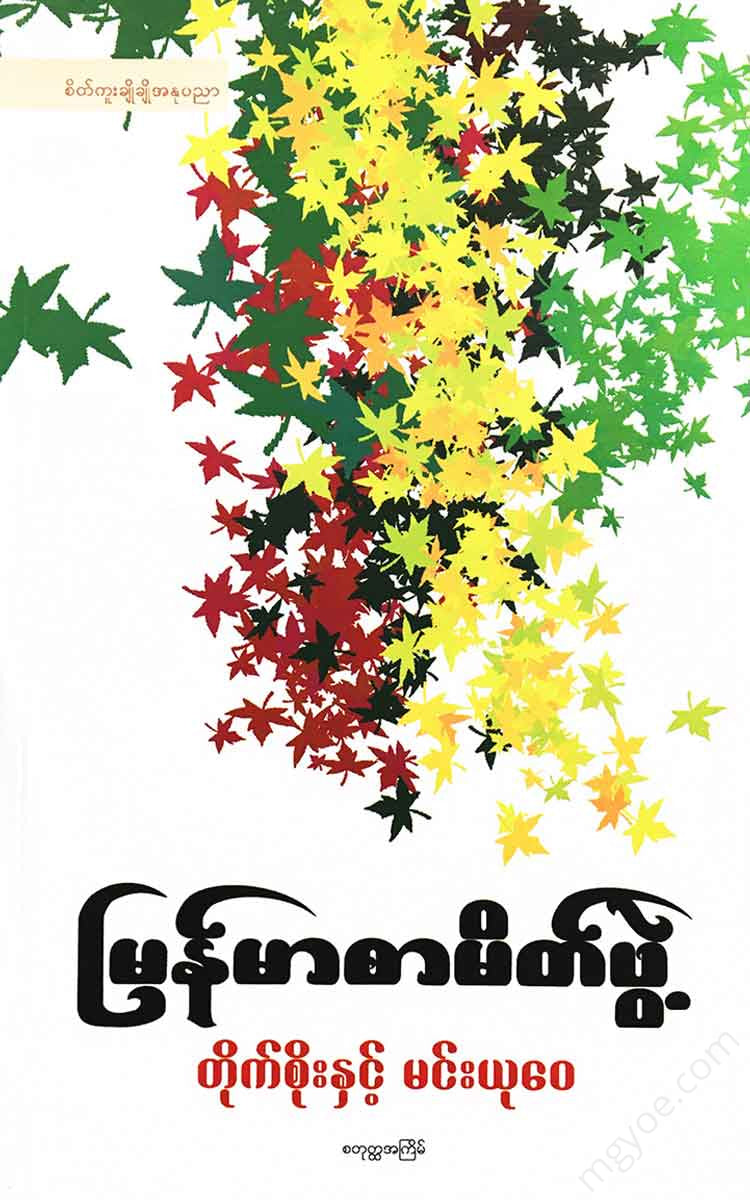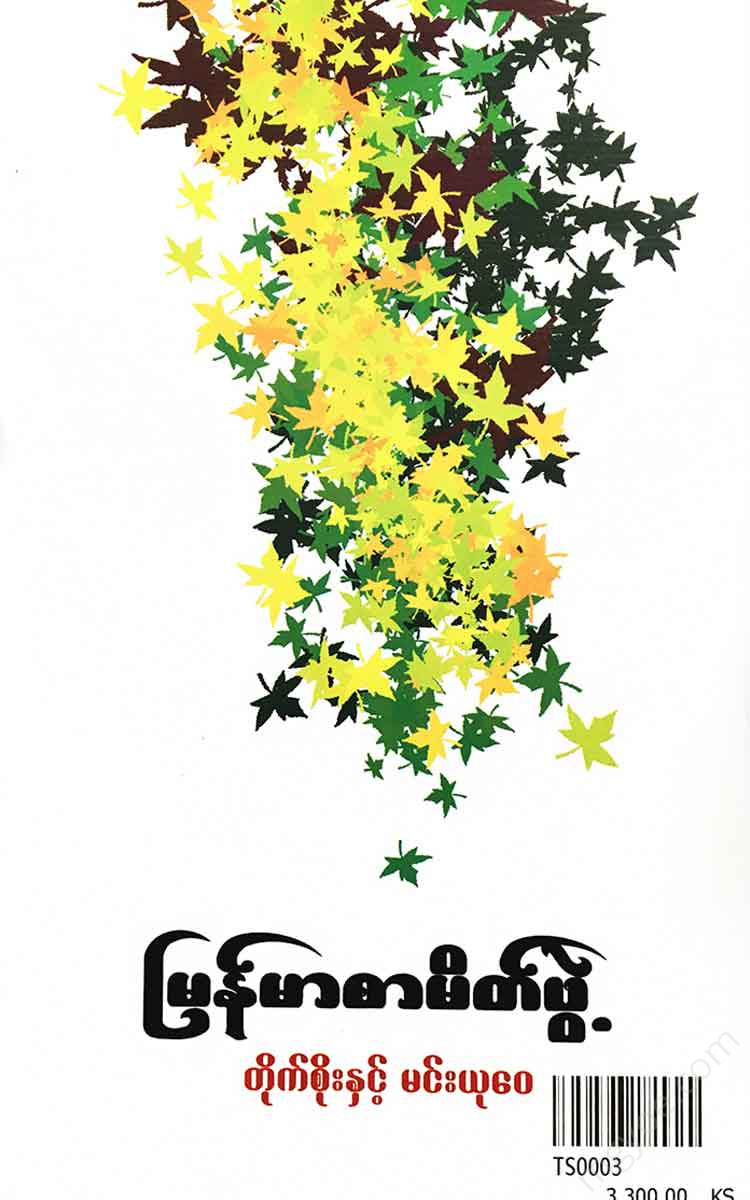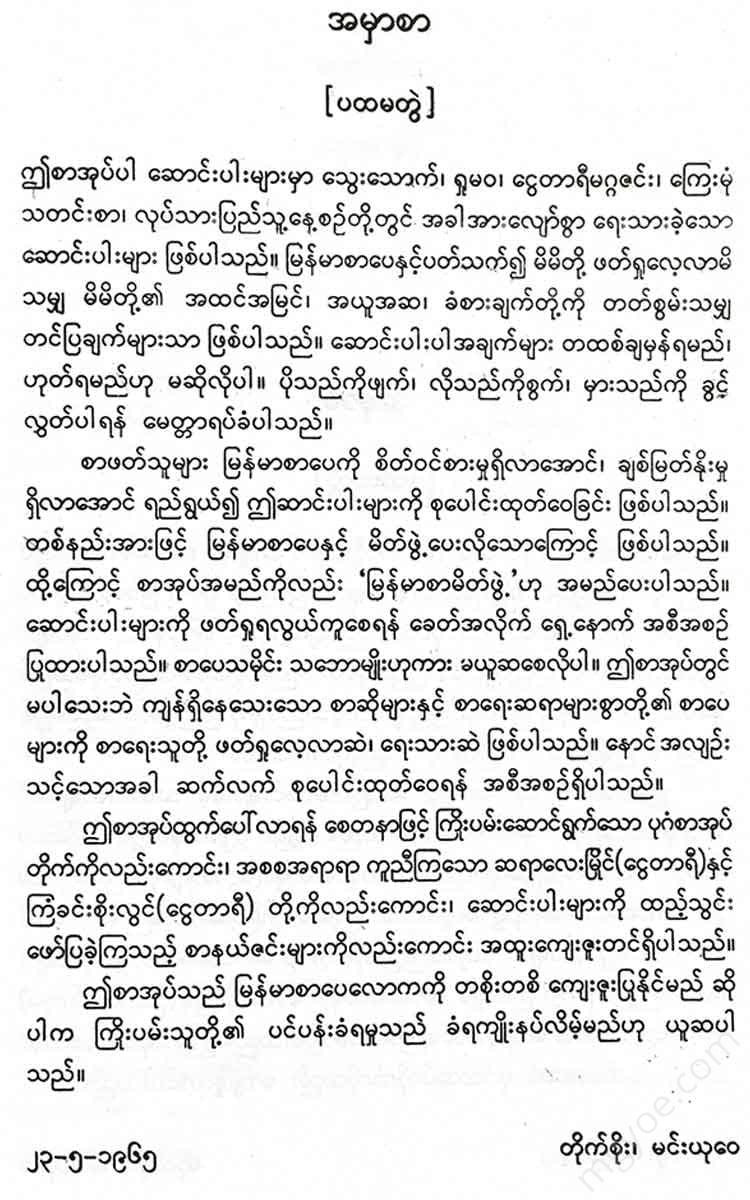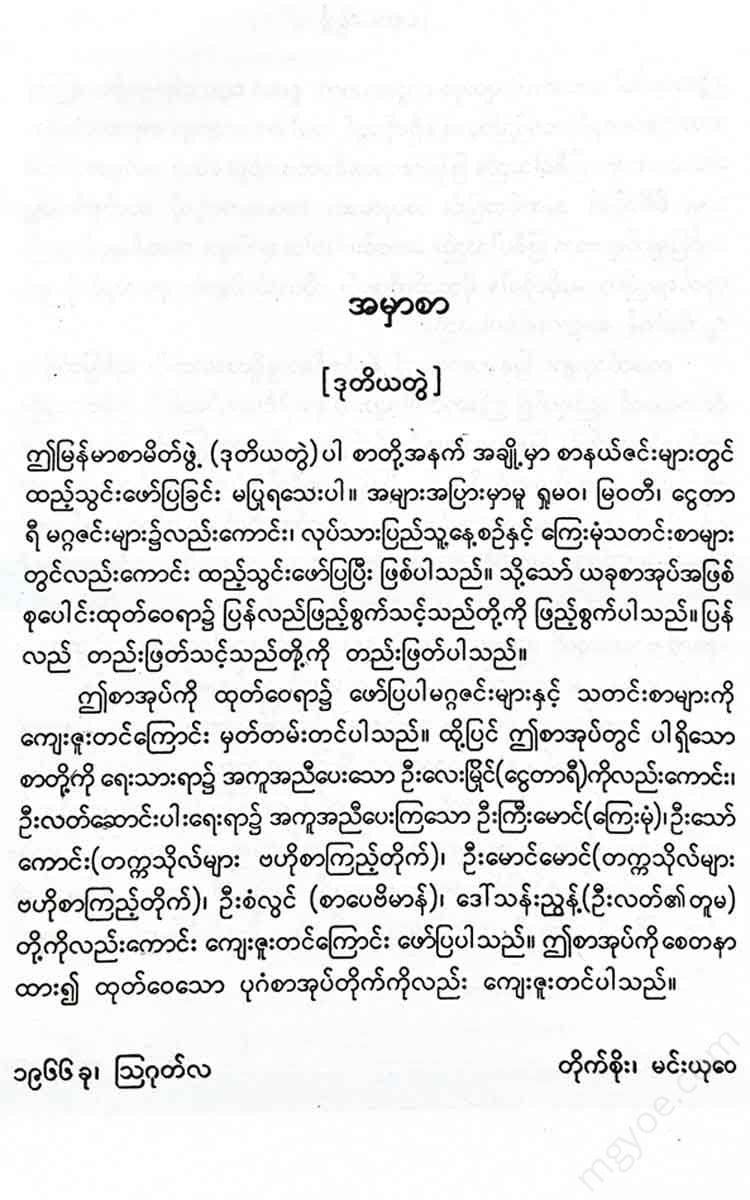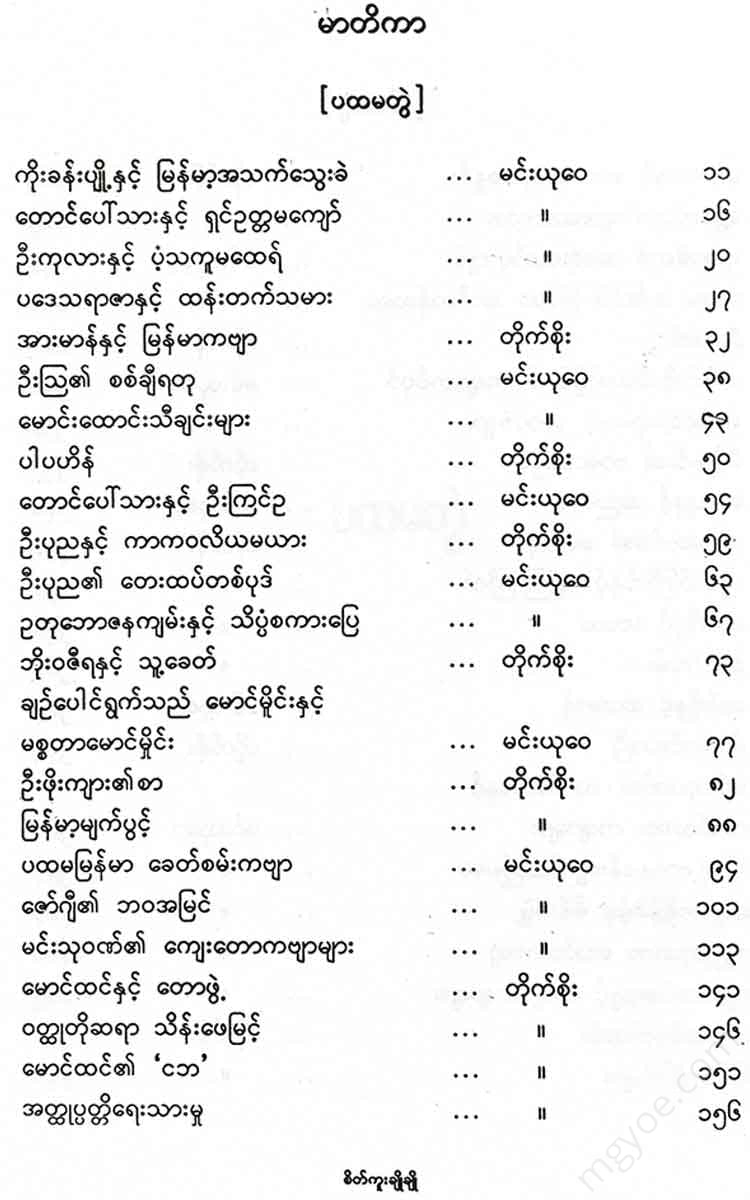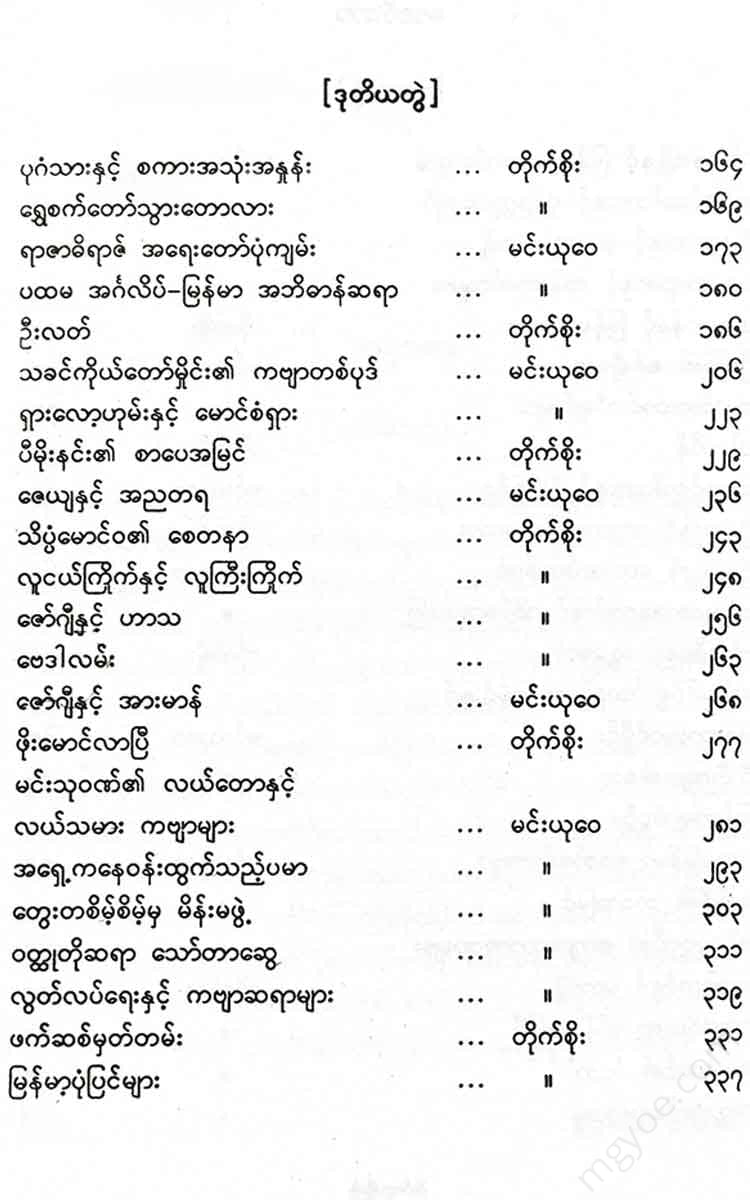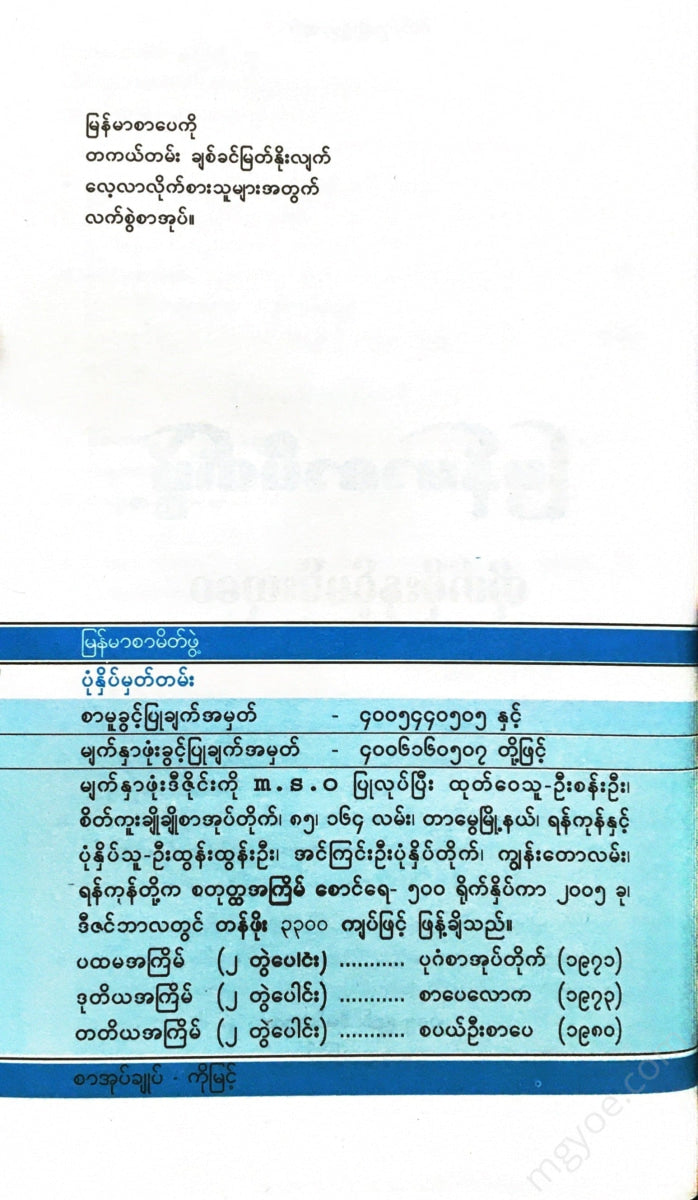စိတ်ကူးချိုချိုစာပေ
Tai Soe and Min Yu Wa - Myanmar Friendship Group
Tai Soe and Min Yu Wa - Myanmar Friendship Group
Couldn't load pickup availability
The Nine-Chapter Poe plays an important role in the history of Burmese literature. Anyone who studies Burmese literature must read and study the Nine-Chapter Poe. If a literary scholar ignores the Nine-Chapter Poe, he will not be recognized as a true student of Burmese literature. Because the Nine-Chapter Poe is the key to Burmese literature.
If you study the nine verses carefully, you can clearly see the meaning of Burmese poetry and metaphor. You can also systematically learn about vocabulary, idioms, grammar, and punctuation.
The sayings that the Burmese still use today, such as “The brave and the wise are the ones who
The author of this famous Nine Chapters is none other than the Venerable Maha Ratthasarama. Maha Ratthasara was a poet of the Inva period. He was born in the year 830 and passed away in the year 892. He began composing this Nine Chapters in the year 885, when he was 55 years old. Due to the unrest in the country, it was completed after three years in the year 888.
In ancient Burmese literature, “Paw” is a popular poetic form. It is a collection of beautiful stories from the Buddhist scriptures, the Buddhist epics, and the Nippās, and is composed in a delightful and varied manner in four-line verse. The nine-chapter Poaw is a compilation of the 550-chapter Hattipāla Jataka. It is about the four brothers Hattipāla, Aspapala, Gopala, and Ajapala who leave the worldly wealth and go to the forest. Therefore, the main presentation of this Poaw should be considered to be the Buddha’s Dhamma. However, it is unique that the Maharāthāsara did not ignore the affairs of the worldly people in presenting the Dhamma. He added and composed it whenever he had the opportunity.
In describing the wifely duties of the mother of Hattipala, the great Brahmin, the Maharathasara says that the great Brahmin did not ask her husband to do all the farmer's chores, such as watering the seeds, plowing, sowing, planting and weeding, taking the cattle out of the farm, watering the fields with water pipes, and threshing the rice. She was a good wife and she herself supervised and encouraged her servants to do their work. This is very pleasing.
I don't ask my husband, every night
Just awake, just awake
Plowing is like plowing, planting is like planting.
Cattle being herded, fields being watered
Cooked with a spoonful of flour and a pinch of salt.
If the mouth is not weak, the slander is strong.
Oh, it's time to judge.
Then, the story of how the house of the great-grandmother was constantly bustling with the sound of spinning, spinning, and spinning, how the householders were busy spinning and weaving, how they were doing all three tasks perfectly: spinning, weaving, and weaving. It is very vivid.
To the evil one, to the brotherly one
The whole house is shaking, the whole house is shaking.
The sound of the wind, the sound of the spinning wheel
Constantly, with a spinning wheel
The thread is not tied properly, the thread is not tied properly, and the thread is not tied properly.
Tie it up, tie it up, it's unlikely to fail.
A hand-woven, three-piece set.
King Esukari and his father, the Brahmin, told Gopala's son not to go out into the forest like his two predecessors. They also said that if he did not go out into the forest, he would be given the kingdom. At that, Gopala refused. He said that he would become a hermit and search for the Dhamma, just as one searches for a lost cow in the forest. In saying this, the Maharatthasara skillfully included the way farmers love cows, love their fields, and are interested in farming.
Rainy day, buy it while it's still working
The hidden treasure, the lost cow
The male cowherd, not seeing the cow.
Longing to plow, yearning in the fields
Walking around, staggering around.
Even though I look around
When you see the footprints of a cow,
If your face is happy and your spirit is upbeat,
Until you find it, search hard.
In this very chapter, Gopala's son says that by cultivating wisdom, mindfulness, concentration, mindfulness, and mindfulness, and by cultivating virtue, meditation, and faith, one can attain Nibbana. In this regard, he skillfully uses metaphors to describe the tools and implements used by farmers and the activities of farmers.
A plowshare, a yoke of arrows
With a sharp blade, I hold on tightly.
With a flower arrangement, with a constant good will
Plow, plow
Caution, plowing the land
Your mind is perfect, and you are able to meditate.
With the sound of the bell, the monk's efforts
The plowman said, "Silapalon,
The rain is pouring down, the wind is blowing.
Dried and dried, gram seeds
From sowing and planting, the harvest will flourish and flourish.
The fruit of the tree grows, the fruit of the tree grows,
Not hungry
Honor is not diminished, it is not experienced.
In ancient Burmese literature, many poets emphasize the cultivation of the sun. Only Maharatthasara and a few poets emphasize the cultivation of the sun, the moon, and the earth. In fact, Maharatthasara was not raised in the vicinity of the island of Kaingin or in the vicinity of the cultivation of the sun, the moon, and the earth. His father was a descendant of the queen of Hanthawaddy, Saw Pu. His mother was a descendant of the king of Inwa, Thatoe, who was born in the city of Inwa. He was raised in the shade of the sun. Later, he became a monk. However, the monk loved the cultivation of the sun. He loved the cultivation of the sun, the moon, and the earth. He understood that these things were the lifeblood of the Burmese people. He loved and respected these things and those who practiced them. Therefore, he did not neglect them, but carefully studied them and included them in his compositions at every opportunity, even in this place where the Dhamma was mainly composed.
Min Yu Wai
